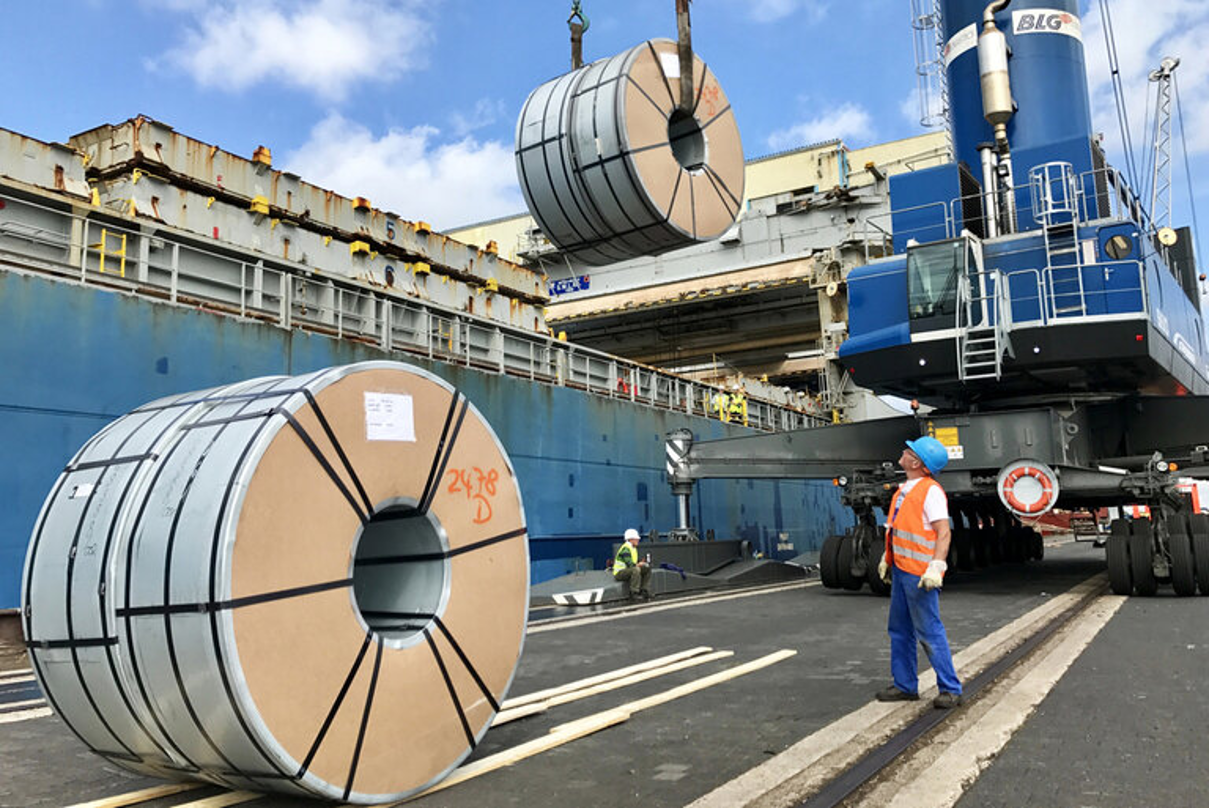Canada

June 3, 2025
Cliffs CEO cheers higher S232. What's next for Canada, Mexico, and automotive?
Written by Michael Cowden
Cleveland-Cliffs Chairman, President and CEO Lourenco Goncalves offered full-throated support for Section 232 tariffs on imported steel being doubled to 50%.
And the top executive of the Cleveland-based steelmaker said the steel industry wanted to see as few exceptions as possible to the tariffs.
More cheese, please
Goncalves said the Section 232 tariff regime President Trump implemented in 2018 had been eviscerated by exceptions and “special arrangements.”
“All of a sudden, you don’t even have Swiss cheese anymore … you only have the holes,” Goncalves said.
He made the comments during a wide-ranging press conference at the American Iron and Steel Institute’s annual conference on Tuesday in Washington, D.C. Goncalves, who is chairman of AISI, spoke alongside Kevin Dempsey, president and CEO of the trade association.
The remarks from Goncalves came after Kevin Hassett, director of the National Economic Council, said earlier in the day that there would be “few” exemptions to the 50% Section 232 tariffs.
The higher tariffs took effect later in the day following a proclamation from President Trump. Among the few exceptions was a carveout for steel and aluminum from the United Kingdom.
Exemptions of Canada and Mexico?
Reporters asked Goncalves whether there might be carveouts for Canada and Mexico, given how closely linked North American supply chains are. “Had Canada and particularly Mexico played by the rules of USMCA, we would not be even having this conversation,” he retorted.
SMU asked whether there might be exemptions for Canada if the country implemented stricter tariffs or safeguards against steel imported into that country. Recall that Barry Zekelman, executive chairman and CEO of Zekelman Industries, hinted at the possibility of Ottawa rolling out stricter trade measures in an SMU Community Chat last week.
Goncalves suggested that Canada should follow the “blueprint” of US trade policy when it comes to steel. What if Canada did so? “Let’s put it like this: that will advance the case. I am very confident that that’s the case,” he said.
The Cliffs’ CEO also acknowledged that he has been very critical of Mexico in the past. But he said the country had made “a lot of improvement” in combatting offshore steel imports.
“I believe that Mexico is gradually gaining, or earning, the ability to be part of this conversation,” he said. “But ring-fencing the bad players is the very first thing that needs to happen. Because without that, we can’t even have a conversation.”
Who are the bad players?
Dempsey gave Vietnam as an example of a country whose import levels hadn’t been restrained by 25% Section 232 tariffs.
Vietnam shipped 1.36 million short tons (1.24 million metric tons) of steel to the US in 2024, according to government figures. That’s more than double the approximately 560,000 st the Southeast Asian nation shipped to the US in 2023.
Dempsey also flagged Southeast Asia, broadly speaking. He said the region’s steel sector has seen extensive investment from Chinese companies. “And the new capacity being built there is largely going to be export-oriented,” he said.
But not everyone seemed to be on board with potential exceptions for Canada and Mexico. Case in point: Sen. Bernie Moreno (R-Ohio) spoke on Monday evening at the event. He accused both countries of allowing fentanyl to flow into the US.
“President Trump’s saying, ‘Hey, look, the only tool I have is either invade you and have a kinetic war or do economic warfare with the tariffs. And so you change your behavior,’” Moreno said.
Only $300 more per car?
Goncalves insisted that the higher duties would not harm steel-consuming industries such as the automotive sector – of which Cliffs is a primary supplier.
A car contains approximately one ton of steel on average. Let’s assume a ton of steel costs $600/st. A 50% tariff would result in the price of that steel increasing to $900/st – or $300/st more than it had been previously, he said.
“So, the average price of a car is $48,000. And with another $300, we are at $48,300. That’s not going to be the deciding factor for a person to buy or not buy a car,” Goncalves said.
If cost is an issue for consumers, it might be because automakers are making overly complex vehicles. “Take away everything that’s fancy that makes the truck look like a spaceship. … They don’t have to have all the bells and whistles and sensors,” he said.
Goncalves also blasted the Federal Reserve. He claimed it has been too slow to reduce interest rates. He also said the Fed has too much power compared to other branches of government.
“What they are doing is killing steel consumption,” he said. “The Fed is not just late. The Fed is ridiculously late in acting.” Goncalves claimed the Fed relied too much on lagging economic indicators. Doing so amounts to “driving the bus just looking in the rearview mirror.”
Auto: We don’t really want to talk about it
His comments came after Sen. Elissa Slotkin (D-Mich.) said at the conference earlier on Tuesday that automakers weren’t pleased with recent trade policy volatility.
“There’s a number of things that, you know, I’ll go to my autos and say, like, ‘I know that’s not good for you guys.’ And they’re like, ‘Yeah, but we don’t really want to talk about it right now,’” Slotkin said.
“I’m like, ‘OK, I don’t need you to, like, get in a fight with Donald Trump. But I also need you to stand up for your interests as an industry,’” she said.
Perhaps most importantly, businesses need more stability than they’re currently experiencing. “I’m not anti-tariff. But I’m really not pro-chaos, either. I do not like what this willy-nilly approach has done to markets,” Slotkin said.
“During Covid, it was like, ‘What do I do? Do I expand? Do I not?” she added. “Industry leaders are giving the same vibe now, except it’s self-inflicted … rather than a worldwide pandemic.”







